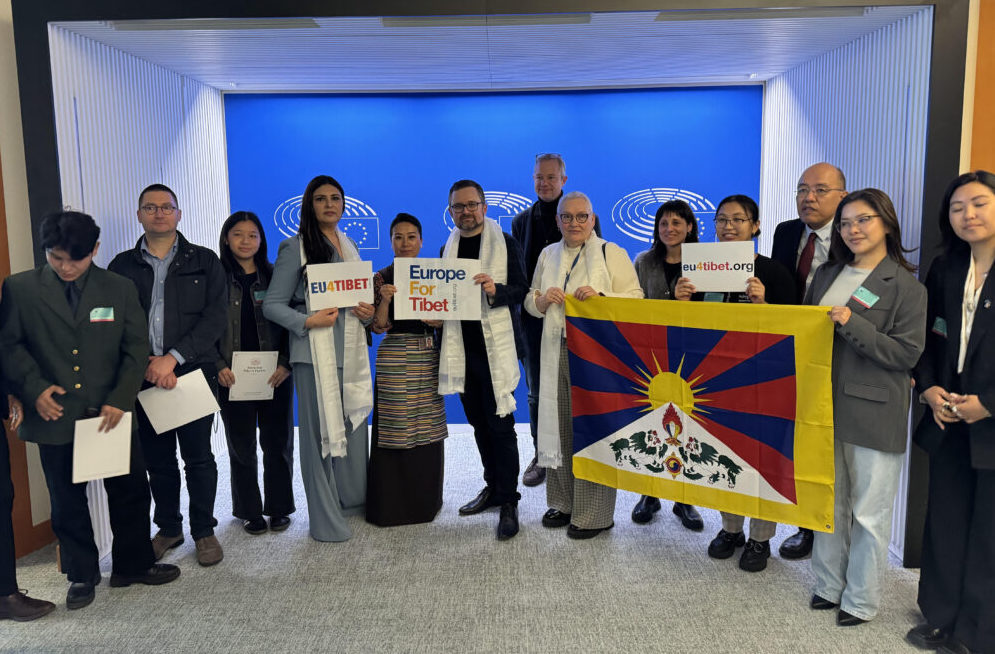By Tsering Dhundup
DHARAMSHALA, April 13: A campaign “Europe for Tibet” was officially launched in the European Parliament on April 9 in Brussels, Belgium with a meeting with Members of the European Parliament in anticipation of the forthcoming European elections slated for June 6-9. The initiative, known as EU4Tibet, is a collaborative effort among various Tibet Support Groups across Europe.
Facilitated by entities such as the Tibet Interest Group in the European Parliament, alongside the Offices of Tibet in Brussels, Geneva, and London, as well as the International Campaign for Tibet in Europe and the International Tibet Network, the campaign aims to garner support for Tibetan rights and freedom on the international political and grassroots circuits.
Additionally, it seeks to provide a platform through the website eu4tibet.org, where groups advocating for Tibetan causes within member states can secure pledges of support from candidates participating in the 2024 European elections and question their respective political parties on their stance concerning Tibet.
The 2024 European elections will see the election of 720 EU citizens to the European Parliament for five years. In light of this, the campaign implores these future parliamentarians to commit to championing Tibet’s cause throughout their tenure. The campaign calls on the future members of the European parliament to pledge to take a stand for Tibet during their mandate.
The European Parliament has been an active supporter of the Tibetan cause and the Dalai Lama’s non-violent approach. It has advocated for dialogue to resolve differences between the Dalai Lama and the Chinese government, pushing for autonomy in Tibet to safeguard religious and cultural freedoms. Since 1988, the Parliament has provided a platform for discussions on Tibet, hosting the Dalai Lama despite objections from China.
Over the years, the European parliament has raised awareness about Tibet’s human rights situation through hearings, exhibitions, and conferences. It has passed around 50 resolutions focusing on Tibet, human rights, and China, addressing issues like religious freedom restrictions and linguistic rights violations.










